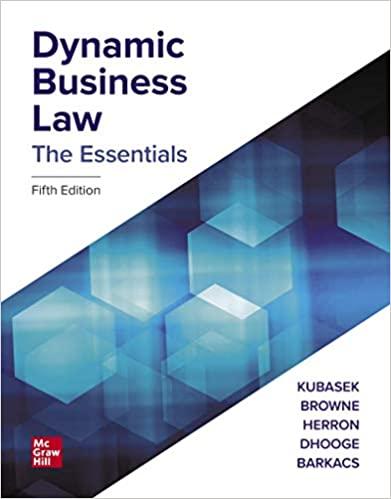Adrian Samalia fled a stolen vehicle during a lawful traffic stop. While Samalia successfully escaped, he left
Question:
Adrian Samalia fled a stolen vehicle during a lawful traffic stop. While Samalia successfully escaped, he left his cell phone in the stolen vehicle. Police officers searched the cell phone without a warrant and used the information contained in it to confirm Samalia’s identification. The data from the phone was used as evidence in a trial against Samalia for possession of a stolen vehicle. Samalia moved to suppress the evidence, arguing that his constitutional rights were violated when they searched the phone without a warrant. The State contended that the warrantless search was allowed under the abandonment doctrine. The trial court denied the motion to suppress and eventually found Samalia guilty. After a series of appeals, the case worked its way up to the Supreme Court of the State of Washington. Under the abandonment doctrine, an individual loses his or her privacy interest in a property if he or she voluntarily abandons it. While Somalia argued that the abandonment doctrine should not be applicable to cell phones because they hold “private affairs,” the Washington Supreme Court ruled that there would be no exception to the abandonment doctrine for cell phones. At this point for the State to prevail, it had to show that Somalia voluntarily abandoned his cell phone. Do you think the cell phone left by Somalia as he ran from the police was voluntarily abandoned? Explain why or why not. How did the Washington Supreme Court rule on this issue and what was its reasoning? Do you agree? Why or why not?
Step by Step Answer:

Dynamic Business Law The Essentials
ISBN: 9781260253382
5th Edition
Authors: Nancy Kubasek, M. Neil Browne, Daniel Herron, Lucien Dhooge, Linda Barkacs





